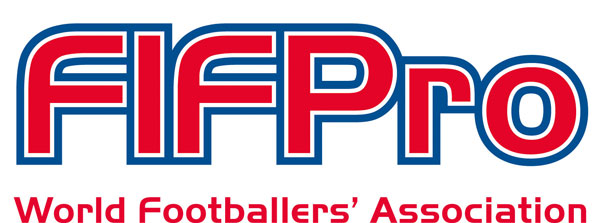By Andrew Warshaw
March 20 – The international players’ union FIFPro has again called on FIFA to reform the international transfer system which, it says, is failing the game and badly need to be addressed.
FIFPro representatives met with the FIFA Players’ Status Committee earlier this week in Zurich but said they “did not receive ample consideration” to lay out their proposals for change.
“We are firmly committed to either replacing the current system or reforming it down to the principles by which it operates,” insisted FIFPro Secretary General Theo van Seggelen.
“However, by delaying the process and denying FIFPro the opportunity to properly discuss its proposals, FIFA indicates to us that they are still some way from understanding the seriousness of our claims.”
“We are clearly disappointed and it does little other than to reaffirm our commitment to prepare all necessary legal means to bring about change.”
The European Club Association representing more than 200 clubs across Europe recently produced convincing figures which it said proved that the status quo was working perfectly well. But not according to FIFPro which approved FIFA’s willingness to create a new working group to study the whole issue of transfers but warned it would take unilateral action if it was not properly consulted.
“This is one step which we hope leads to much-needed reform in the interests of seeking solutions through constructive dialogue, but we will not allow negotiations to drag on. We are prepared to take decisive action,” warned Van Seggelen, who was joined in Zurich by fellow FIFPro representatives Brendan Schwab, Rinaldo Martorelli, Fernando Revilla, Dejan Stefanovic and Johan Van Gaalen.
FIFPro said it had outlined the following areas to the Players’ Status Committee for discussion:
Overdue Payables:
“One of the primary concerns for FIFPro centres on ensuring all players are paid in a timely fashion. Non-payment of salaries and of obligations between clubs remains the biggest and most desperate problem for football. Given the epidemic nature of non-payment and disrespect of contracts a conscious focus must be placed on sanctions, deterrence and protection of creditors”
“FIFPro emphasises the need to amend the relevant regulations in a manner that protects players from non-payment of salaries, and in particular which provides for their payment promptly as they fall due, no later than thirty [30] days from the contracted payment date with appropriate sanctions to be imposed in the event of non-payment.”
Training compensation:
“FIFPro states that compensation for training players must be based on actual cost incurred and that compensation for breach of contract must be predictable for the player. Furthermore, on the basis of figures established by the FIFA TMS (Transfer Matching System) and other resources the redistribution effects of training compensations and solidarity payments are insufficient.”
Protected Abuse Period:
“The ‘Protected Period’ originally intended to increase the stability of contracts and protect a club’s investment on the transfer market, has in reality evolved into one of the most severe control mechanisms a club has over its players. Equally unacceptable is the artificial renewal of the ‘Protection Period’ which is triggered once a player extends his contract. As such, the ‘Protected Period’ has the potential to hinder a footballer’s freedom of movement on a revolving permanent basis.”
Breach of Contract
“FIFPro has targeted issues arising from a breach of contract which promotes an imbalance of powers between clubs and players. Incredibly high levels of compensation and sporting sanctions imposed on players in breach of contract make it virtually impossible for them to explore the labour market, even after fulfilling the original limitation of their movement – the protected period.”
Restrictions on unemployed players:
“The current regulations (see Article 6 of RSTP) are interpreted in a way that is restricting players without a contract (free agents) from finding a new club outside the transfer windows. This is unacceptable as it clearly limits a player’s right to work. The protection of the integrity of competitions must be the sole limitation of a non-contracted players ability to seek employment.”
Application of EU law principles:
“FIFPro wishes to eradicate inconsistencies which see principles established under European law in relation to FIFA’s Regulation of the Status and Transfer of Players (RSTP) undermined in Switzerland in cases which go before a different legal framework at the Court of Arbitration for Sport (CAS).
Loan system:
“FIFPro believes the loan system needs to meet two conditions: a) the consent of the player must be safeguarded and b) that the contractual responsibilities are clearly stipulated and any uncertainty about the fulfilment of obligations, importantly the payment of salary and benefits, is removed. Presently, players find themselves in precarious situations in which both are not guaranteed.”
Procedural Improvement of the FIFA DRC:
“The ineffectiveness of FIFA’s Dispute Resolution Chamber (DRC) is seen in countless cases where parties abuse the procedures to delay fulfilling their obligations. FIFPro believes a strong and consistent policy on non-responding parties in the FIFA DRC is necessary. FIFPro proposes the introduction of a requirement to deposit the relevant disputed amount, together with the request for the grounds of the appeal with FIFA, as an ideal tool to prevent procedural abuse.”
FIFPro recommendations include punitive measures for parties acting in “bad faith” or repeat offenders; the establishment of fast track procedures for less complex debt cases; and an increase of DRC and single judge meetings. In addition, FIFPro said for the DRC to be considered a trustworthy mechanism, the publication of all its decisions is “absolutely necessary” in name of transparency.
Contact the writer of this story at moc.l1734877098labto1734877098ofdlr1734877098owedi1734877098sni@w1734877098ahsra1734877098w.wer1734877098dna1734877098

